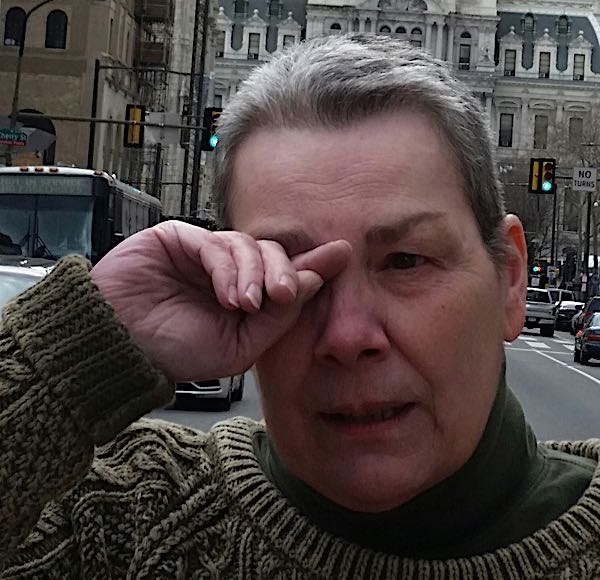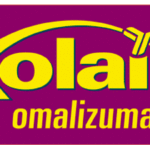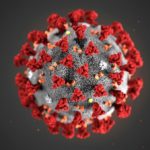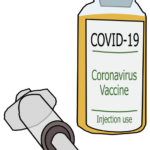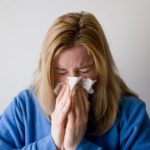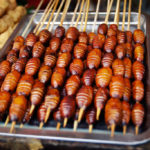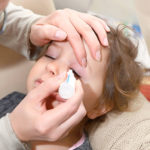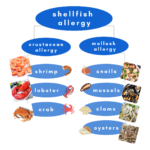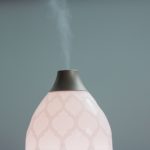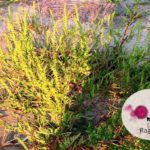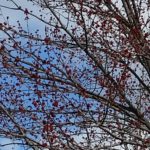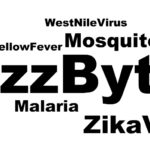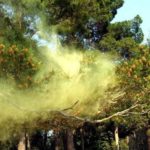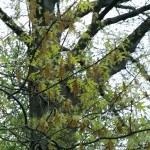Eye Allergy: Itchy Watery Eyes? Is it Tree Pollen?
“Allergic eye symptoms can impact anyone-even our very own Allergy Lab Technician, Ina Frankel” (Photo Courtesy of The Asthma Center)
Philadelphia, PA – March 3, 2017 – With the presence of very high to extreme levels of early tree pollen in the air, if your eyes are itchy now, eye allergy could be the cause.” – Dr. Marc Goldstein, Board-Certified Allergist at The Asthma Center
“As soon as Juniper started sprouting last week, my eyes started itching. “ That’s how Joe, one of The Asthma Center’s longtime patients described his symptoms to Dr. Goldstein today. (Thank you Joe for sharing your experience!) And Joe’s experience is not unique – over the last two weeks, complaints of eye symptoms have spiked across our allergists’ offices. Usually allergy related eye symptoms hit hardest in the spring, most likely due to higher volumes of pollen in the air. But as tree pollen has spiked in Philadelphia recently, the past few weeks have been particularly harsh for allergy sufferers.
Prevalent symptoms include:
- Itchy, watery eyes
- Eyelid problems
- Dark circles around the eyes
- Eye burning
- Eyes sticking together
- Dry eyes
- Reactions to contacts
Are Eye Allergies to Blame?
Eye allergy is caused when mast cells release chemical mediators (histamines) which trigger allergic reactions. Mast cells superpopulate the lining of the eyes which naturally come in contact with the same air that is inhaled through the nose and mouth. When large amounts of an environment allergen (example: Juniper/Cedar tree pollen and all other early blooming trees) are present, the eyes become a “target” for eye allergy symptoms.
Why now? What’s In the Air Now?
As the only official certified pollen, ragweed and mold spore counter for Delaware Valley, Dr. Dvorin continues to observe very high and extreme levels of early tree pollen and high levels of outdoor mold spores in the air samples collected for Philadelphia and Mount Laurel, NJ. Juniper/Cedar tree pollen is the predominant pollen in the air currently. Other tree pollen present include Maple and Elm tree pollen. And as long as tree pollen stays prevalent in the air, allergy sufferers unfortunately will continue to experience eye related symptoms.
What to do about Eye Allergies?
No two allergy sufferers are alike, so over-the-counter medication may not work well for everyone’s symptoms. Instead, our allergists and pediatric allergists develop personalized treatment plans to help our patients feel better. We identify specific levels of allergic sensitivity using minimally invasive in-house diagnostics, like allergy skin testing. Pairing these results with local knowledge of allergy triggers like pollen, ragweed and mold, our allergists develop personalized plans that treat not only the symptoms but also the cause of allergies. And because allergy symptoms often spike with pollen, we know exactly when to adjust allergy medication – providing more relief when conditions are bad and less medication every time else.
Our allergists, pediatric allergists, and asthma specialists treat patients in 9 convenient locations throughout the Delaware Valley including Philadelphia (Center City Philadelphia, Society Hill Philadelphia, Northeast Philadelphia), The Main Line – Montgomery County (Bala Cynwyd – Lower Merion PA), Bucks County (Langhorne PA), and South Jersey (Mt. Laurel NJ, Woodbury NJ, Hamilton NJ, Forked River NJ).
Did You Know? Pollen, Ragweed & Mold Spore Counts Direct to Your Inbox!
The Asthma Center’s daily Pollen, Ragweed and Mold Spore Counts are available by email! With counting stations in Philadelphia, PA and Mt. Laurel, NJ, we are Delaware Valley’s only official pollen source certified by the National Allergy Bureau. Subscribe to receive our daily counts by email and check out some of our other blog posts to learn more about what is in the air, how it can affect you, and what you can do about it.
For interviews and tours of the Delaware Valley’s only certified pollen and mold spore stations for the National Allergy Bureau (NAB) certified pollen, ragweed, and mold spore counting stations in Philadelphia, PA and Mt. Laurel, NJ, please email gwoodlyn@asthmacenter.com
The health information contained in this article is meant for basic informational purposes only. It is not intended to serve as medical advice, substitute for a doctor’s appointment or to be used for diagnosing or treating a disease.
Recent
Popular

